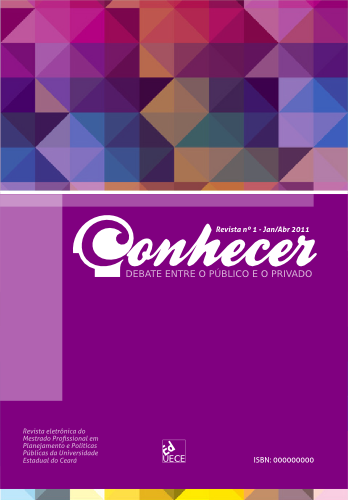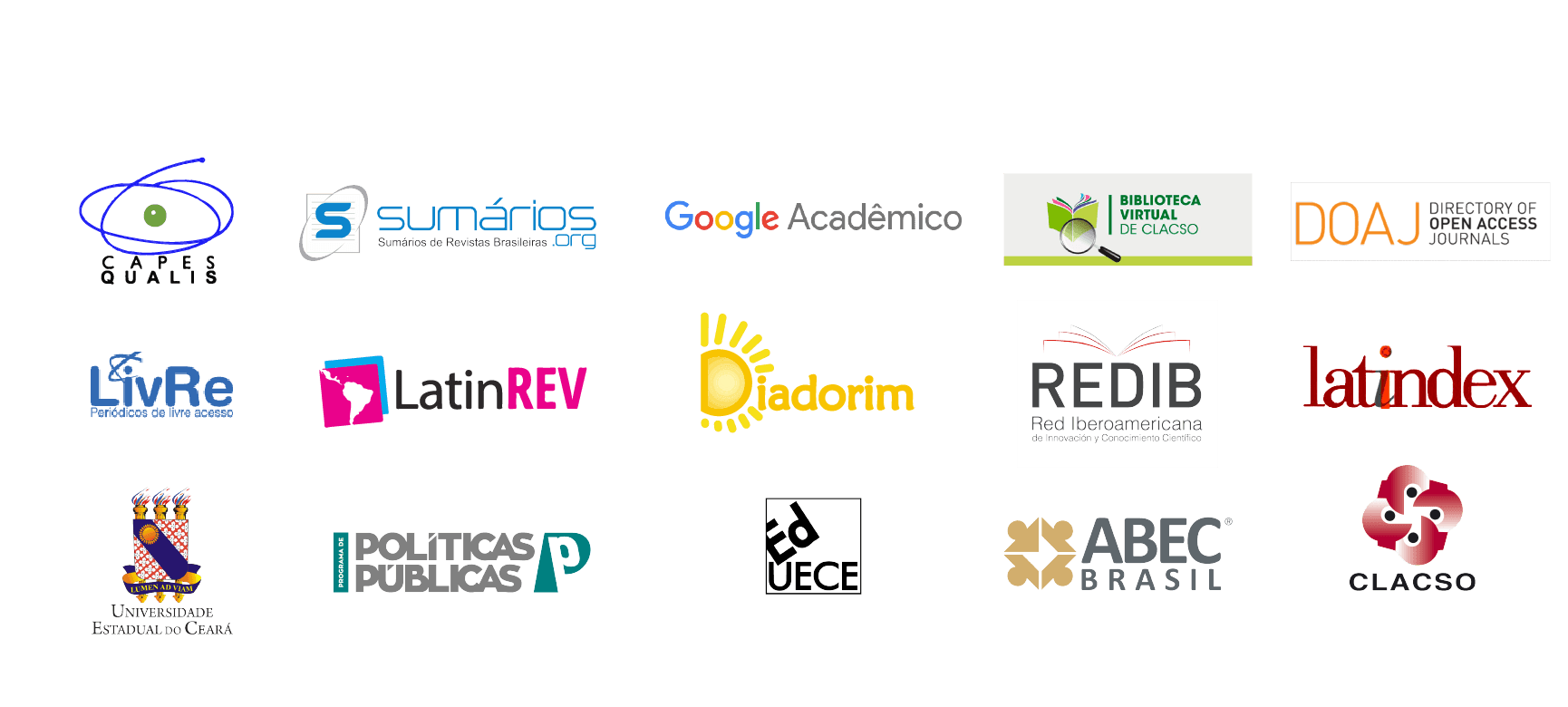Utilização da Internet como Recurso Pedagógico por Docentes da Universidade Estadual do Pará
Keywords:
new information technologies and communication, internet, pedagogical mediationAbstract
This research aimed to know the profile of Internet use as a pedagogical resource centers for teachers of Social Sciences and Education, Center of Biological Sciences and Center for Natural Science and Technology University of Pará-UEPA, public higher education institution maintained by the Government of the State of Pará, revealing characteristics such use and which factors influence the level of adoption of this practice in the physical spaces of the institution or distance interactions. To collect the data we used an electronic form accessible via the Internet containing a questionnaire with closed and chained types of multiple choice, obtaining 144 forms responded, representing 19% of the population. The data analysis revealed a high level of Internet use by teachers, restricting, however, the communication tools to exchange messages (emails) and the orientation of students to access content and bibliographic databases available in network. It was identified that most teachers are encouraged to expand the use of this resource in their teaching, although it is not clear to them whether their initiatives in this direction are promoting greater participation and motivation of its students in educational activities. Additionally, it was found that in the opinion of these actors, the main factors that impede the development of this action are linked to lack of training for use of resources, inadequate physical infrastructure and technological resources available at the institution, and basically, the lack of an institutional policy toward the inclusion of new methodologies in the educational processes.
Downloads
References
BRUNNER, José Joaquim, Educação no encontro com as novas tecnologiasin: TEDESCO, Juan Carlos (org.) Educação e Novas Tecnologias: esperança ou incerteza ? Tradução de Claudia Berliner;. São Paulo: Cortez. Buenos Aires: IIPE. Brasília: UNESCO, 2004.
CASTELLS, Manuel. A galáxia Internet: reflexões sobre Internet, negócios e sociedade. Rio de Janeiro: Jorge Zahar Ed., 2003.
COSCARELLI, C. V. (Org.) Novas tecnologias, novos textos, novas formas de pensar. Belo Horizonte: Autêntica, 2002
FARIAS FILHO, Milton Cordeiro. Noções gerais de projeto e pesquisa : uma abordagem didática. São Paulo: Baraúna, 2009.
GALVIS, Álvaro H. Oportunidades educativas de las TIC. Disponível em http://www.colombiaaprende.edu.co/html/investigadores/1609/articles-73523_archivo.pdf. Acessado em 21/02/2010.
KENSKI, Vani Moreira. Educação e Tecnologias: Um novo ritmo da informação. Campinas, SP. Papirus. 2007.
LEMOS, André; Lévy, Pierre. O Futuro da Internet. Em direção a uma ciberdemocracia planetária., São Paulo, Editora Paulus, 264p., 2010.
LÉVY, Pierre. A Revolução Contemporânea em Matéria de Comunicação. In: Revista Famecos, Porto Alegre; nº 9, dez. 1998 -Semestral. Disponível em http://revistaseletronicas.pucrs.br/ojs/index.php/revistafamecos/article/viewFile/3009/2287. último acesso em 04/07/2010.
________.Cibercultura, Lisboa, Instituto Piaget, 1997.
MAGDALENA, BeatrizCorso; COSTA, Iris Elisabeth Tempel. Internet em sala de aula: com a palavra, os professores. Porto Alegre: Artmed, 2003
MASETTO, Marcos T. Mediação pedagógica e o uso da tecnologia. In: ______. MORAN, José Manuel; MASETTO, Marcos T.; BEHRENS, Marilda Aparecida. Novas tecnologias e mediação pedagógica. 12 ed. Campinas: Papirus, 2000. 173p.
MERCADO, Luiz PauloLeopoldo (Org.). Novas tecnologias na educação: reflexões sobre a prática. Maceió: EDUFAL, 2002.
MORAN, José Manuel. Como utilizar aInternet na Educação. Disponível em www.scielo.br/pdf/ci/v26n2/v26n2-5.pdf . último acesso em 02/09/2010.
_____, José Manuel. Novas tecnologias e mediação pedagógica.Campinas,SP:Papirus, 2000.
PRETTO, N. de L. Uma escola sem/com futuro-. São Paulo: Papirus Editora, 1996.
SANCHO, Juana M.(org.) Para uma tecnologia educacional. Tradução de Beatriz Affonso Neves. Porto Alegre, Artmed, 1998
SILVA, Marco. Internet na escola e inclusão.In: Integração das Tecnologias na Educação/ Secretaria de Educação a Distância. Brasília: Ministério da Educação, Seed, 2005.Disponível em http://portal.mec.gov.br/seed/arquivos/pdf/2sf.pdf. último acesso em 04/07/2010
TEDESCO, Juan Carlos (org.) Educação e Novas Tecnologias: esperança ou incerteza ? Tradução de Claudia Berliner; Silvana Cabucci. São Paulo: Cortez. Buenos Aires: IIPE. Brasília: UNESCO, 2004.
UNIVERSIDADE DO ESTADO DO PARÁ. Plano de Desenvolvimento Institucional2005-2014. Belém. PA. EDUEPA. 2007
VIANA, Maria Aparecida Pereira. Internet na Educação: Novas formas de aprender, necessidades e competências no fazer pedagógico. In: MERCADO, Luiz PauloLeopoldo (Org.). Novas tecnologias na educação: reflexões sobre a prática. Maceió: EDUFAL, 2002.
Downloads
Published
How to Cite
Issue
Section
License
Authors who publish in this journal agree with the following terms:
- Authors retain the copyright and grant the journal the right of first publication, and the study is simultaneously licensed under the Creative Commons Attribution License, which allows sharing the study by acknowledging authorship and initial publication in this journal.



